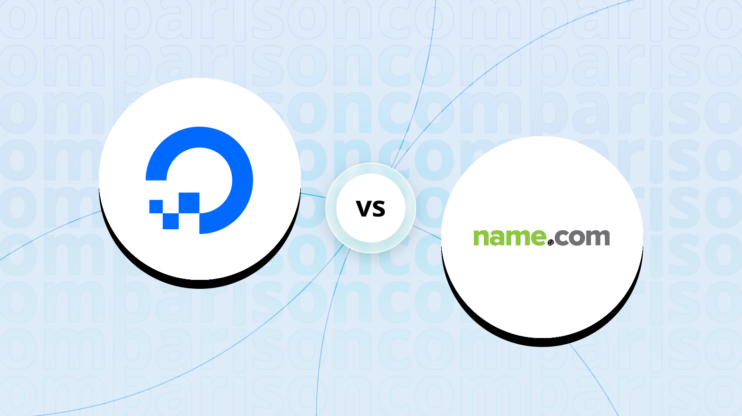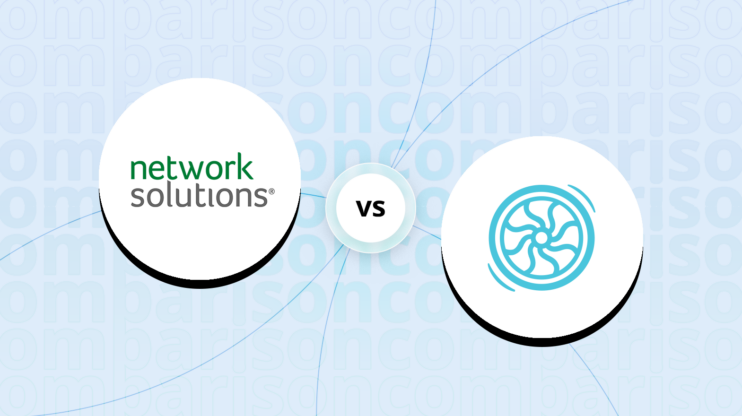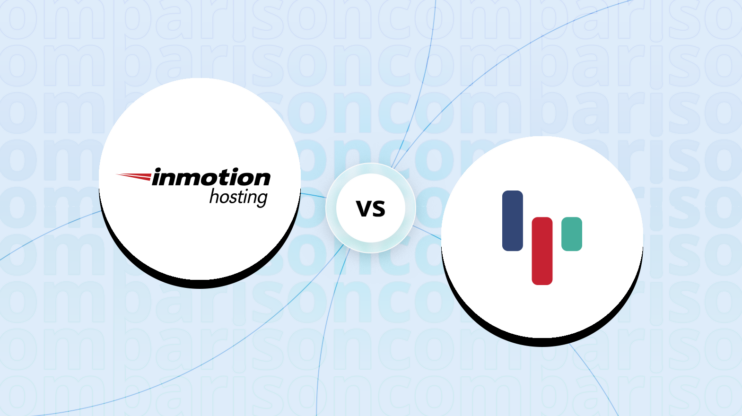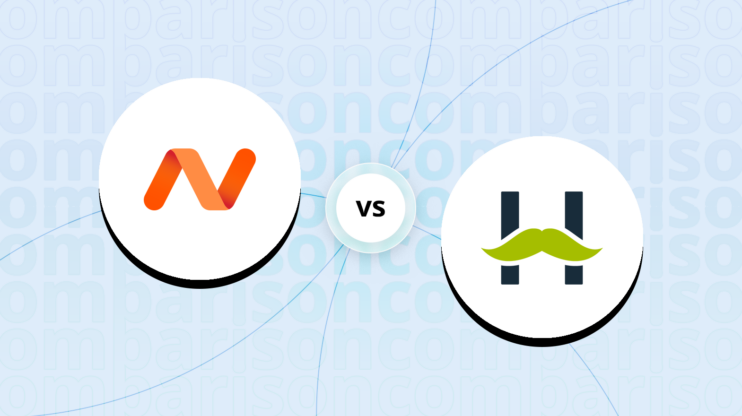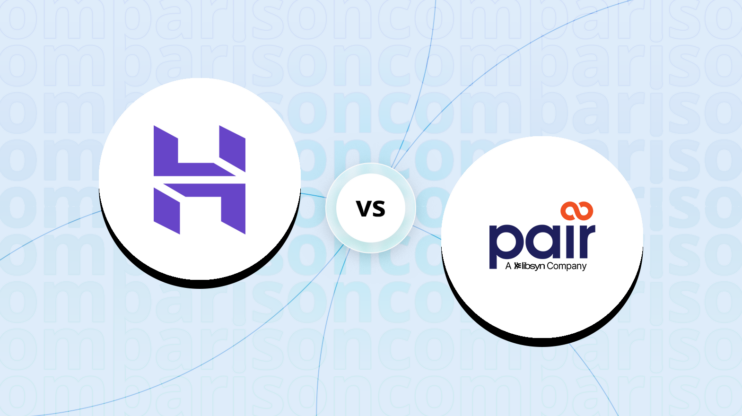Hostgator vs StableHost: Final verdict
Looking over HostGator vs. StableHost, it’s clear why both hosts are so popular. They have both hosted millions of
websites that run on WordPress for decades, building up a loyal customer base.
-
HostGator (Overall grade: 8.0)
provides various hosting types such as shared, WordPress, ecommerce, VPS hosting, and dedicated hosting, making it a versatile option for different user needs. Its strengths include a 99.9% uptime guarantee, 24/7/365 support via phone and live chat, and comprehensive security features like SiteLock, Cloudflare CDN, and CodeGuard. HostGator’s performance benefits from increased vCPU allocations, SSD storage, and unmetered bandwidth. However, some downsides include competitors offering higher uptime guarantees and issues with long wait times for customer support. Overall, HostGator is an excellent choice for users seeking a feature-rich, scalable, and secure hosting service, especially for high-traffic and ecommerce websites.
StableHost (Overall grade: 6.9)
shines with its reliable uptime, server flexibility, and competitive pricing. The platform is particularly appealing to agencies and beginners due to its unlimited disk space, bandwidth, and user-friendly interface, including the Site.Pro Web Builder. Although StableHost lacks advanced ecommerce features and dedicated hosting options, it compensates with robust support that includes 24/7 monitoring and a 45-day money-back guarantee. While it offers good performance through SSD drives and efficient handling of traffic spikes, its CDN specifications are not as clear, and some users have noted higher prices for advanced plans. StableHost is best suited for users looking for affordable and dependable hosting solutions without the need for highly advanced features.
 Overall grade:8.0 |
 Overall grade:6.9 |
|
|---|---|---|
| Uptime and Availability | 7.6 | 9.0 |
| Hosting Performance | 7.7 | 7.2 |
| Hosting Security | 8.6 | 8.5 |
| Price | 7.4 | 8.4 |
| Hosting Features | 7.5 | 5.9 |
| Ease Of Setup | 8.7 | 8.2 |
| User Management | 7.8 | 0.0 |
| Customer Support | 8.6 | 7.6 |
| User feedback | 3.6/5 | 4.8/5 |
Hosting types offered
Both platforms provide a variety of hosting types, each designed to meet the different needs of users.
 |
 |
|
|---|---|---|
| Shared hosting | ||
| Cloud hosting | ||
| WordPress hosting | ||
| Ecommerce hosting | ||
| VPS hosting | ||
| Dedicated hosting |
Although both offer a variety of hosting plans tailored to different needs, in
certain cases, one platform may prove to be more suitable.
Detailed comparison
Uptime and availability
Evaluates the average uptime statistics, uptime guarantee and overall availability of the hosting
provider
Score Components:
- Uptime percentage (30%): evaluates the uptime statistics in given period of time
- Uptime guarantee (20%): Assesses if the platform offers an uptime guarantee and
whether the actual uptime matches the promised guarantee. - General performance (25%): Evaluates how fast is the average response time and overall
it’s stability. - Responsiveness (10%): Adaptability to different devices and screen sizes.
- Availability (25%): Reflects the total downtime and number of outages.
 7.6
7.6
 9.0
9.0
🏆 Winner StableHost: Reliable uptime and impressive server flexibility.
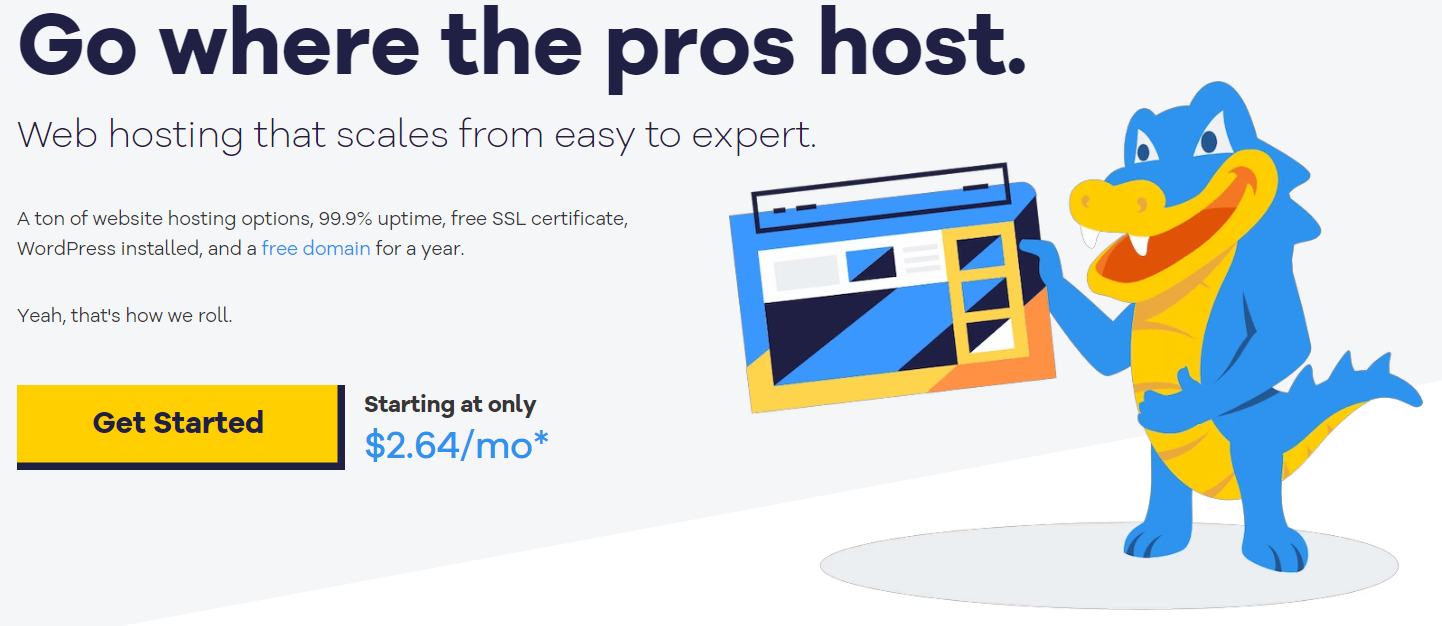
HostGator offers a 99.9% uptime guarantee, ensuring minimal downtime of about 8.76 hours annually. Its 24/7/365 support via telephone or Live Chat provides constant assistance. However, some competitors offer a higher uptime guarantee of 99.99%, resulting in less annual downtime comparatively. HostGator remains a strong choice but falls slightly short in uptime assurance.

StableHost matches HostGator’s uptime guarantee but stands out with additional features such as clustered hosting for better site availability. With servers in multiple global locations, it provides a reliable framework for various user needs. The promise of a 45-day money-back guarantee further builds user confidence, solidifying StableHost as the top choice.
Which one has better hosting performance?
Score Components:
- Hosting speed (30%): This includes SSD quality, Load times, PageSpeed score ranges,
additional information on website speed, built-in plugins for performance enhancement, available caching
methods, and CPU/RAM options - CDN (20%): Considers whether CDN is available or not, whether it’s free or paid, and
the quality of the CDN service - Available data centers (30%): Evaluates the number of data centers and their locations
globally. - Scalibility (20%): Looks at whether elastic scaling is available, the process required
to scale (manual upgrade vs. automatic scaling), the presence of dedicated servers, and the costs
associated with scaling.
 7.7
7.7
 7.2
7.2
🏆 Winner HostGator: Best overall performance for website hosting.
When comparing the general performance of HostGator and StableHost, HostGator stands out for its 99.9% uptime guarantee, unmetered bandwidth, and various SSD storage options depending on the plan. HostGator also boasts of increased performance through vCPU allocations and uses the Cloudflare CDN to facilitate faster page load speeds. Although StableHost offers high read/write speeds and uses SSD drives with unlimited bandwidth, its CDN offerings aren’t specified, making HostGator the better option for content delivery and quick load times. Both HostGator and StableHost have multiple data centers, but HostGator’s availability of free migration services and free domain registration for the first year adds to its appeal.
Website Speed
HostGator ensures fast website load times with features like Cloudflare CDN, increased vCPU allocations for specific plans, and SSD storage. On the other hand, StableHost utilizes customized LiteSpeed, PHP, and MySQL for fast load times and handles traffic spikes with a 200Gbps network. Although StableHost promises good performance enhancements, HostGator’s use of Cloudflare CDN and higher vCPU allocations provide more comprehensive speed improvements and broader coverage, making it the better choice for consistently high website speed.
Scalability
HostGator offers scalable plans designed to grow with your website, from shared plans to larger VPS and dedicated server options. Their flexible offerings allow for easy upgrades without significant downtime. StableHost’s scalability details are less clear, and there is no mention of automatic scaling or dedicated servers. The cost to scale isn’t provided for either service. Given HostGator’s clear scalability options and easy upgrade path, it is the recommended choice for businesses looking to grow effortlessly.
Which one has better security features?
and regulatory requirements
Score Components:
- Technical security measures (40%): This includes encryption, firewalls, DDoS
protection, secure configurations, server monitoring, access control and availability of security addons
(e.g Sitelock security). - Operational security measures (30%): Encompasses data privacy, backups and data
redundancy. - Compliance and certifications (20%): Adherence to legal and regulatory requirements
(e.g., GDPR, HIPAA) and possession of certifications (e.g., ISO 27001, SOC 2). - Business and reliability (10%): Factors in the provider’s reputation, uptime
guarantees, and customer support.
 8.6
8.6
 8.5
8.5
Winner HostGator: Offering robust security features and comprehensive compliance measures.
Technical security measures:
HostGator provides a range of SSL certificates including free SSL, Positive SSL, Single Domain SSL, Wildcard SSL, and EV SSL, offering varying levels of warranty and protection. In comparison, StableHost offers Comodo Standard, Wildcard, EV, and Multi Domain SSL certificates, ensuring encrypted data through these standard types. HostGator supports PHP 8.2, while StableHost supports multiple versions including PHP 7.x and 8.x. HostGator’s additional technical security measures include SiteLock, Cloudflare CDN, and CodeGuard backup services. StableHost also provides daily backups, virus/spam filtering, and VPN services but does not specify integration with advanced tools like HostGator’s SiteLock and Cloudflare.
Operational security measures:
HostGator provides 24/7/365 customer support via multiple channels including phone, live chat, and Twitter, as well as a KnowledgeBase and blog for self-service help. StableHost matches this with 24/7 server monitoring, daily backups, and email-based virus/spam filtering. HostGator’s SiteLock automatically detects and removes malware and also provides DDoS protection. StableHost’s security audits include penetration testing and recommendations for securing servers and applications. Both providers offer comprehensive operational security measures, but HostGator’s added features such as Cloudflare CDN and SiteLock give it an edge.
Compliance and certifications:
HostGator has been GDPR compliant since May 25, 2018, ensuring that personal data of EU residents is handled according to GDPR regulations. They also mention PCI compliance, focusing on server-related aspects, while noting that software compliance is the user’s responsibility. StableHost is also GDPR compliant and offers a Personal Data Assistance Agreement for customers. Both services provide essential compliance features, but HostGator’s explicit mention of PCI compliance adds an extra layer of assurance for secure payment processing.
 |
 |
|
|---|---|---|
| SSL certificate | Free SSL, Positive SSL, Single Domain SSL, Wildcard SSL, EV SSL | Comodo Standard, Wildcard, EV, Multi Domain |
| Additional security features | SiteLock, Cloudflare CDN, CodeGuard | Security audits, VPN, virus/spam filtering, WAF, R1Soft backups |
| PHP versions | PHP 8.2 | PHP 7.x, PHP 8.x |
| GDPR compliance | Yes | Yes |
| HIPAA compliance | Not specified | Not specified |
| PCI compliance | Yes, server-related PCI compliance | Not specified |
Hosting features
Score Components:
- Domains (20%): Assesses the availability of a free domain, domain purchase options, and
pricing - Email (15%): Considers if the provider offers full email hosting, or is reselling
third-party service, and if the email is only transactional or not - Website builder (15%): Checks if website builder is available, and it’s user
friendliness and overall the level of customization allowed. - Staging environment (20%): Determines if a staging environment is available, allowing
for testing changes before going live. - FTP & SFTP accounts (10%): Evaluates if and how easily users can access FTP and
SFTP accounts - Git and SSH access (20%): Assess whether Git is integrated into the hosting service and
if SSH access is provided
 7.5
7.5
 5.9
5.9
Winner HostGator: A versatile hosting provider with robust feature offerings suitable for varied user needs.
HostGator and StableHost both offer a variety of attractive features for different types of users, yet they cater to slightly different needs. HostGator stands out with its three hosting plans, which include the Hatchling, Baby, and Business plans, and offer a free domain for the first year, cPanel, unlimited email accounts, and unmetered bandwidth. They also come with numerous advanced features such as unlimited MySQL support for PHP 8.2, full Unix shell access, and DDOS scrub center. In contrast, StableHost provides a more streamlined service with unlimited MySQL databases, FTP accounts, and a site builder. One of the significant differences is that StableHost offers SSH access for an additional fee, while HostGator includes SSH access within their advanced user features.
One of the key deciding factors could be the availability and user-friendliness of the site builder and the customization options it offers. HostGator provides a free domain registration for the first year along with a versatile plan specifically for WordPress users, which may be a big draw for users looking to build feature-rich WordPress sites quickly. On the other hand, StableHost offers Site.Pro Web Builder, which is known to be user-friendly and easy to work with, though it may not provide as many customization options as a WordPress-focused platform. Potential customers might also weigh the additional costs, such as SSH access fees with StableHost, more critically if they require advanced customization and features.
 |
 |
|
|---|---|---|
Free domain |
Yes, for the first year |
No |
Free SSL |
Yes |
Yes |
Email hosting |
Yes |
Yes |
Website builder |
No |
Yes |
Staging environment |
No |
No |
FTP & SFTP accounts |
Yes |
Yes |
Git and SSH access |
Yes, included |
Yes, for an additional fee |
Free backup |
Yes, for the first year |
Yes |
Money back guarantee |
Yes, 30 days |
Yes, 30 days |
a location.
As a result in rare cases the features mentioned here can differ from the ones you see on their websites.
Both providers support a range of users from beginners to experts with user-friendly website builders and WordPress staging areas. However, in terms of developer tools, both HostGator and StableHost offer robust options including SSH access, support for multiple programming languages, and Git for version control, thus appealing to developers looking for advanced capabilities.
Email services:
Email services at HostGator are provided through a partnership with Microsoft 365, offering a professional email and access to Outlook on a trial basis before transitioning to a paid service. Conversely, StableHost provides unlimited free professional email accounts, which is particularly beneficial for users requiring multiple email accounts without incurring additional costs.
Price
Score Components:
- Plan value (40%): What each pricing tier offers.
- Transparency and clarity (30%): Clearness of pricing structures.
- Flexibility of plans (20%): Range of options to suit different budgets.
- Hidden costs (10%): Additional expenses not included in the plan.
 7.4
7.4
 8.4
8.4
🏆 Winner StableHost: Offering competitive pricing and an array of features, StableHost stands out as a superior choice for hosting solutions.
Evaluating the pricing of plans among various hosting providers can be complex due to their differing pricing and renewal strategies. Additionally, certain plans require annual commitments, which adds to the difficulty of making comparisons. The prices listed are based on monthly commitments; plans requiring annual commitments are indicated. Additionally, although some providers offer identical plans for WordPress and shared hosting, we have created separate tables for each to enhance clarity.
When comparing the pricing plans from HostGator and StableHost, several notable differences arise in both cost and offerings. HostGator’s WordPress hosting plans start at $21.99/month for their Baby Plan, scaling up to $34.99/month for the Pro Plan with additional storage and features like malware scanning and Cloudflare CDN. StableHost offers significantly cheaper WordPress hosting plans, starting at $4.30/month for their Starter Plan and $38.99/month for the Platinum Plan, the latter providing unlimited disk space and bandwidth. For shared hosting, HostGator presents options beginning at $17.99/month, whereas StableHost’s pricing is remarkably lower, with discounted rates starting at $0.90/month. Similarly, StableHost offers competitive VPS plans starting at $10.95/month, which is far more economical compared to HostGator’s lowest VPS plan at $91.99/month.
 |
 |
|---|---|
|
Baby Plan$21.99
Up to 2 websites, 20GB storage, unmetered bandwidth, phone & chat support, free domain 1st year, free SSL, malware scanning, Cloudflare CDN, increased performance (2 vCPU’s). Value for price:7.0
|
Starter$10.59
1 website, unlimited disk space, unlimited bandwidth, free SSL, unlimited email accounts, monthly visitors ~300k, free website builder, 45-day money-back guarantee. Value for price:9.0
|
|
Business Plan$27.99
Up to 3 websites, 40GB storage, unmetered bandwidth, phone & chat support, free domain 1st year, free SSL, malware scanning, daily website backup, domain privacy 1st year, increased performance (3 vCPU’s). Value for price:7.2
|
Pro$15.99
Unlimited websites, unlimited disk space, unlimited bandwidth, free SSL, unlimited email accounts, monthly visitors ~300k, fast page load times, 45-day money-back guarantee. Value for price:9.1
|
|
Pro Plan$34.99
Up to 5 websites, 100GB storage, unmetered bandwidth, phone & chat support, free domain 1st year, free SSL, malware scanning, maximum performance (5 vCPU’s), daily website backup, domain privacy 1st year. Value for price:7.4
|
Platinum$40.99
Unlimited websites, unlimited disk space, unlimited bandwidth, VIP support, 99.99% SLA, 45-day money-back guarantee. Value for price:8.8
|
 |
 |
|---|---|
|
Hatchling Plan$17.99
Single website, 10GB SSD storage, unmetered bandwidth, basic email, free domain 1st year, cPanel support. Value for price:6.5
|
Mini$1.50
1 website, 5GB disk space, 500GB traffic, 3 email accounts, free SSL, site builder, 99.9% SLA. Value for price:9.2
|
|
Baby Plan$21.99
Up to 2 websites, 20GB SSD storage, unmetered bandwidth, basic email, free domain 1st year, cPanel support, phone & chat support. Value for price:6.8
|
Starter$10.59
1 website, unlimited disk space, unlimited bandwidth, free SSL, unlimited email accounts, monthly visitors ~300k, free website builder, 45-day money-back guarantee. Value for price:8.7
|
|
Business Plan$27.99
Up to 3 websites, 40GB SSD storage, unmetered bandwidth, basic email, free domain 1st year, cPanel support, phone & chat support. Value for price:7.0
|
Pro$15.99
Unlimited websites, unlimited disk space, unlimited bandwidth, free SSL, unlimited email accounts, monthly visitors ~300k, fast page load times, 45-day money-back guarantee. Value for price:8.9
|
| N/A |
Platinum$40.99
Unlimited websites, unlimited disk space, unlimited bandwidth, VIP support, 99.99% SLA, 45-day money-back guarantee. Value for price:8.8
|
 |
 |
|---|---|
|
Snappy 2000$91.99
2 GB RAM, 2 Core CPU, 120GB SSD storage, unmetered bandwidth, cPanel & WHM, billing software, unlimited websites, email accounts, MySQL, FTP accounts. Value for price:6.2
|
VZ 1GB$10.95
1024MB RAM, 1 Core CPU, 40GB storage, 2TB transfer, 1000Mbit network. Value for price:8.5
|
|
Snappy 4000$131.95
4 GB RAM, 2 Core CPU, 165GB SSD storage, unmetered bandwidth, cPanel & WHM, billing software, unlimited websites, email accounts, MySQL, FTP accounts. Value for price:6.3
|
VZ 2GB$16.30
2048MB RAM, 2 Core CPU, 60GB storage, 2TB transfer, 1000Mbit network. Value for price:8.8
|
|
Snappy 8000$161.99
8 GB RAM, 4 Core CPU, 240GB SSD storage, unmetered bandwidth, cPanel & WHM, billing software, unlimited websites, email accounts, MySQL, FTP accounts. Value for price:6.4
|
VZ 4GB$32.95
4096MB RAM, 4 Core CPU, 100GB storage, 4TB transfer, 1000Mbit network. Value for price:9.0
|
| N/A |
VZ 8GBN/A
8192MB RAM, 6 Core CPU, 200GB storage, 8TB transfer, 1000Mbit network. Value for price:N/A
|
| N/A |
VZ 16GBN/A
16384MB RAM, 8 Core CPU, 300GB storage, 16TB transfer, 1000Mbit network. Value for price:N/A
|
Enterprise plans
For enterprises, HostGator’s options begin at $91.99/mo for the Value Server, offering 8 GB RAM, 4 core CPU, and unmetered bandwidth. StableHost’s enterprise-level plans include the Pro and Plus tiers for Reseller Hosting, starting at $18.29/mo, with the Plus plan accommodating up to 100 clients with 60GB disk space. The value proposition for large-scale hosting leans towards StableHost due to their competitive pricing and extensive range of features, providing a better deal for businesses requiring robust hosting solutions.
Hostgator vs StableHost: Ease of setup
platform.
Score Components:
- Site migration (25%): Assesses whether the provider offers tools for site migration,
either automated or manual, and whether these services are free or require a fee. - Admin panel usability (35%): Evaluates the type of admin panel provided, such as the
standard cPanel or a custom solution, focusing on its accessibility and user-friendliness for both
technical and non-technical users. - Setup features (20%): Examines the availability and ease of use of various setup
features, including FTP accounts, file managers, email account setup, PHPMyAdmin, and easy CDN
configuration. - Help center quality (20%): Measures the quality and accessibility of the provider’s
help center resources, including articles and tutorials.
 8.7
8.7
 8.2
8.2
🏆 Winner HostGator: Offers a user-friendly control panel and free migration services.
HostGator uses a custom control panel designed to simplify the user experience, making it accessible for both technical and non-technical users. This control panel consolidates various functionalities into a single dashboard, enhancing the ease of website management. Features like one-click installs for over 75 open-source scripts and pre-installed WordPress further streamline the setup process, reducing the time and effort needed to launch a website.
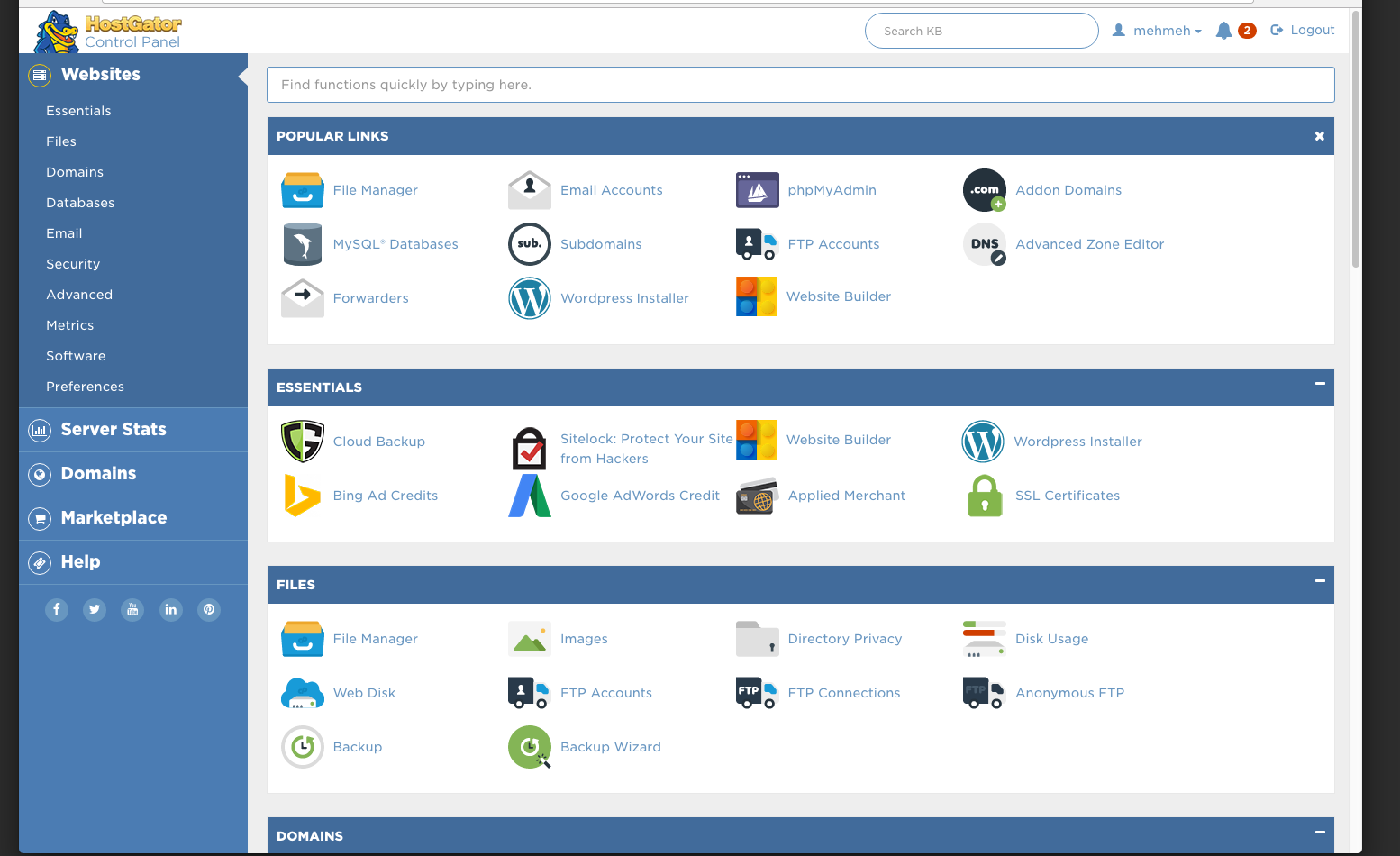
StableHost offers cPanel for shared and reseller hosting, and SolusVM for VPS, both known for their intuitive and user-friendly interfaces. cPanel is widely recognized and appreciated for its ease of use, while the SolusVM control panel is designed for managing virtual servers efficiently. StableHost also includes the Site.Pro Web Builder, which utilizes a drag-and-drop interface, making it easier for users with little to no technical background to create and manage websites.
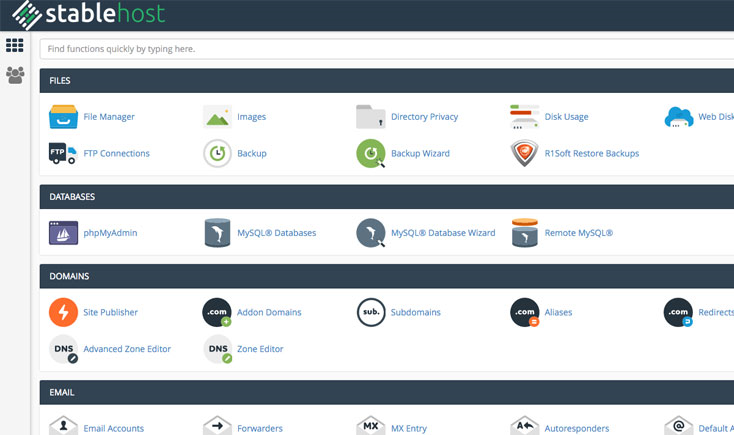
In terms of migration tools, HostGator provides free migration services to facilitate the move of your website. This offering ensures a hassle-free transition for users switching to their platform. StableHost, however, does not explicitly mention free migration services; users may need to rely on manual migration tools or potentially incur additional fees for such services.
HostGator boasts a plethora of support resources, including 24/7/365 support via phone, live chat, and Twitter. The comprehensive KnowledgeBase, YouTube tutorials, blog posts, and Facebook community offer various ways for users to find help. StableHost also offers 24/7 support, with an average response time of 20 minutes. Their Help Center covers a wide range of topics through detailed articles and guides.
User management
accessibility.
Score Components:
- Role customization (40%): Flexibility in creating and defining user roles and
permissions. - Ease of management (30%): User interface and tools for managing users.
- Access control (20%): Effectiveness of access control measures for different user
levels. - Scalability (10%): Ability to manage a growing number of users efficiently.
 7.8
7.8
 0
0
🏆 Winner HostGator: Offers comprehensive user role management with detailed permissions and administrative flexibility.
HostGator provides a structured and detailed approach to user management, offering three distinct user roles: Primary Contact, Administrative Contact, and Technical Contact, each with specific permissions. This allows for targeted user access control depending on the task requirements. On the other hand, StableHost lacks detailed information regarding user roles and permissions, making it difficult to assess its capabilities in this area. Therefore, HostGator clearly stands out in terms of its user management due to its clarity and flexibility in role assignments.
HostGator’s user management interface within its Customer Portal is intuitive, allowing easy navigation to add, edit, or remove user roles. Users can be invited through a straightforward online form, simplifying the process of role assignment. The platform also enables role updates and removals efficiently. Since there is no specific interface information available for StableHost, HostGator’s interface is more evidently user-friendly and effective for administrative tasks.
In terms of access control, HostGator excels by providing distinct user permissions, which streamline managing different access levels for varied roles. This structure is particularly beneficial for organizations that require multiple layers of access, allowing the primary contact to maintain overall control while delegating specific tasks to administrative and technical contacts. This organized approach supports scaling as users can be added and managed without compromising security or functionality.
HostGator User Roles Table
| Role | Description | Access Highlights |
|---|---|---|
| Primary Contact | Full authority over the account, suitable for the main account holder. | Edit account holder info, edit payment info, add/edit/delete roles, purchase and manage products, renew services, edit domain WHOIS info, and add users. |
| Administrative Contact | Handles administrative tasks with substantial permissions. | Edit payment info, add/edit/delete roles, purchase and manage products, renew services, edit domain WHOIS admin or tech info, and add users. |
| Technical Contact | Focuses on product maintenance with limited permissions. | Manage and renew products and services, edit domain WHOIS admin or tech info. |
Customer support
hosting provider.
Score Components:
- Support communication channels (30%): Measures the variety of customer support types
provided (live chat, chatbot, email, phone, etc.) - Availability (20%): Assesses the availability hours for each channel, including 24/7
support options. - Technical support quality (30%): Assesses whether the provider offers comprehensive
technical support, including hardware upgrades (e.g., HDD to SSD), software installations, and web
server configuration changes. - Enterprise support (20%): Checks if there are dedicated or priority support services
for enterprise-level customers.
 8.6
8.6
 7.6
7.6
🏆 Winner HostGator: Providing consistent support and various contact options, HostGator ensures reliable assistance for users around the clock.
 |
 |
|
|---|---|---|
Phone support |
||
Live chat support |
||
Chatbot |
||
Email/ticket support |
||
Enterprise support (dedicated agent, priority support) |
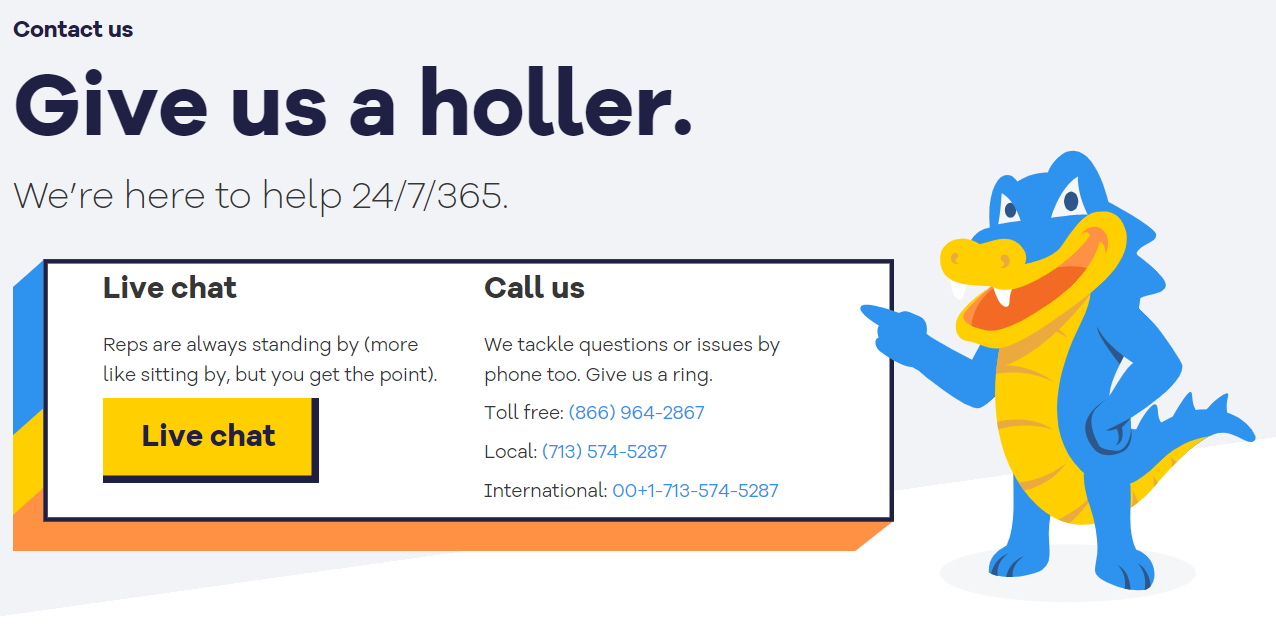
HostGator offers a comprehensive set of customer support options available 24/7/365, making it accessible at any time. Users can reach out through phone support, live chat, and Twitter, ensuring they have multiple channels to address their issues. Additional resources such as a knowledge base, YouTube tutorials, and webinars provide valuable information and self-help options.

StableHost has a well-structured support system with dedicated hours for sales and billing queries but ensures technical support is available 24/7. Users can contact them via phone, email, and live chat, although there is no dedicated enterprise support or chatbot available. The company also provides a knowledge base and system status updates on its website.
Overall, both HostGator and StableHost provide reliable support options, but HostGator’s broader contact options and continuous availability make it the preferable choice.
Hostgator vs StableHost: User feedback
HostGator receives mixed reviews from its users, highlighting its affordability, ease of use, and satisfactory customer support for general web hosting needs. Many users appreciate the competitive pricing, variety of hosting plans, and the user-friendly interface that simplifies website management. However, several customers report significant frustrations with long wait times for technical support, frequent upselling of additional services, occasional slow server performance, and unexpected price increases. Overall, HostGator is seen as a viable option for budget-conscious users and small businesses, though it may not be the best fit for those needing robust technical support and high-performance hosting.
StableHost receives high praise for its reliable performance and excellent customer support, often described as prompt and helpful. Users appreciate its ease of integration, comprehensive setup guides, and rich feature set, making it an ideal choice for both novice and advanced users. While some advanced users find certain functionalities lacking and note higher pricing compared to budget-friendly options, the overall consensus is positive due to its strong uptime and user-friendly interface. The plans are seen as reasonably priced, especially with available discounts, though some users miss the immediate tech support response times of the past.
Hostgator vs StableHost: FAQ
Which platform is better suited for hosting WordPress websites?
Both HostGator and StableHost are well-suited for hosting WordPress websites, offering one-click installations, unlimited bandwidth, and 24/7 support. The choice between them would depend on needs like performance and specific features. Therefore, both platforms effectively tie in this category, making either a viable option for WordPress hosting.
Which hosting service offers better security features?
HostGator offers a comprehensive range of security features including SiteLock, Cloudflare CDN, and CodeGuard, along with various SSL certificate options. StableHost provides Comodo SSL certificates and daily backups, but lacks integration with advanced tools like SiteLock and Cloudflare. Thus, HostGator stands out in terms of robust security features.
What are the major differences in pricing and value between HostGator and StableHost?
HostGator’s plans are generally more expensive, offering a broader range of features like free domain registration and advanced performance enhancements. StableHost offers more budget-friendly plans, especially for WordPress and VPS hosting, but with fewer advanced features. Overall, StableHost provides excellent value for lower costs, while HostGator offers more comprehensive features.
Which hosting service offers more scalability options for growing websites?
HostGator offers a wide range of scalable plans from shared hosting to VPS and dedicated servers, allowing for easy upgrades without significant downtime. StableHost’s scalability details are less clear and do not mention dedicated servers or automatic scaling options. Therefore, HostGator is recommended for businesses looking to scale effortlessly.
How do the providers handle email hosting and what features are included?
HostGator provides unlimited email accounts with transactional email capabilities, allowing for flexible business communication. StableHost also offers unlimited email accounts, forwards, auto-responders, and mailing lists, along with virus and spam filtering. Both providers excel in email hosting, but HostGator’s additional features may offer more comprehensive solutions.
The making of this blog
We followed a clear, step-by-step process to write and research this article.









